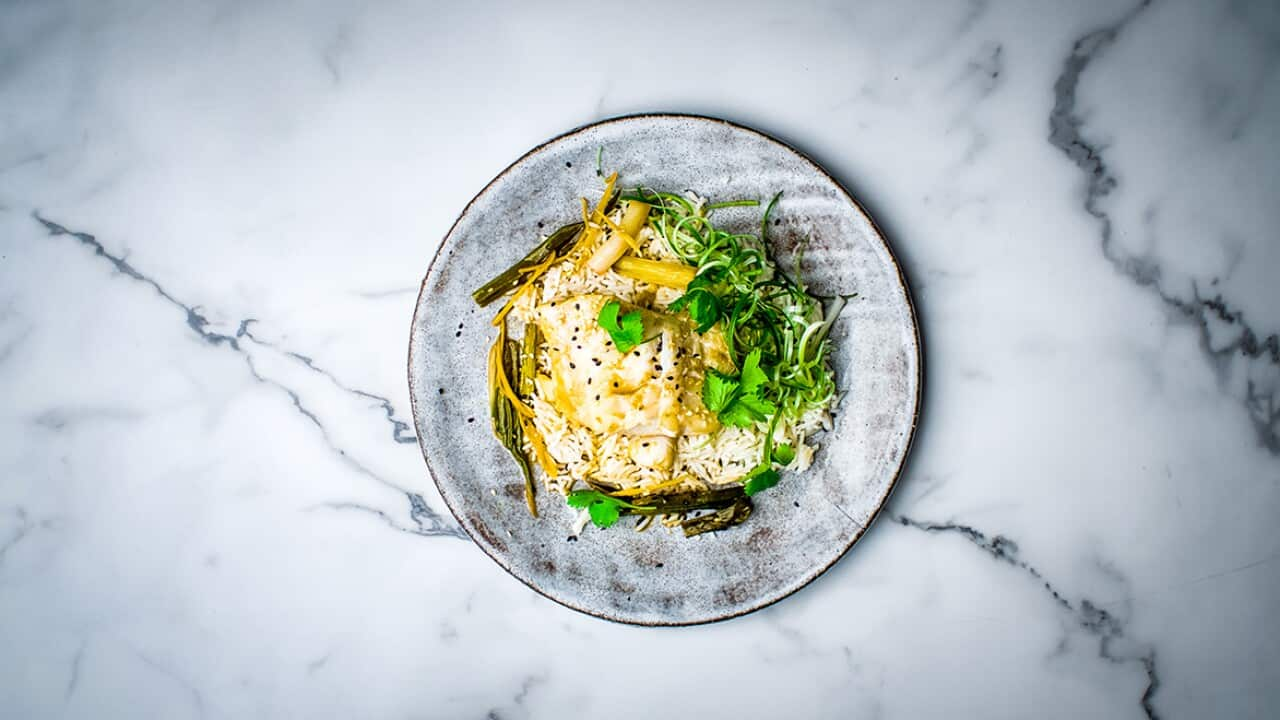--- airs weeknights on SBS Food at 7.00pm and 10.30pm, or stream it free on . Catch the rice episode Thursday 21 July. ---
In Asia, rice is life. More than 90 per cent of the world's rice is produced and consumed in the region, making countries and their citizens dependent on the crop.
Indeed, rice is integral to the region's culture, cuisine and even verbiage.
Greetings
In many Asian cultures, asking if one has eaten yet is a way to show affection and concern.
In Thailand, this question is replaced by the phrase, kin khao ayung?, which translates to 'have you had rice yet?' A common Mandarin greeting is ni chī fàn le ma? or 'have you eaten rice today?'. However, it's the equivalent of asking 'how are you?'
A common Mandarin greeting is ni chī fàn le ma? or 'have you eaten rice today?'. However, it's the equivalent of asking 'how are you?'

Have you had your rice today? Source: Digital Vision / Getty Images
Rice is the most important dish on the table. Without it, a feast feels incomplete.
The many names of rice
Vietnam is one of the top exporters and consumers of rice worldwide. It's no surprise then that there are several names for it in Vietnam, including lúa (rice plant), gạo (rice grain), cơm (cooked white rice) and nếp (sticky rice). In the Philippines, the myriad of names for rice almost feels like a progression: palay (unmilled rice), bigas (milled rice), kanin (cooked rice), tutong (burnt rice); bahaw (leftover rice), lugaw (rice porridge), kakanin (rice cakes) and pinipig (rice crispies).
In the Philippines, the myriad of names for rice almost feels like a progression: palay (unmilled rice), bigas (milled rice), kanin (cooked rice), tutong (burnt rice); bahaw (leftover rice), lugaw (rice porridge), kakanin (rice cakes) and pinipig (rice crispies).

There are many types of rice in Vietnam.
Meanwhile, in Japan, rice is considered a meal's foundation. The most common names for rice are kome (threshed, uncooked rice) and gohan (cooked rice or the rice meal itself). Meanwhile, the term asagohan is used to refer to rice eaten in the morning.
Rice is deeply personal
According to food historian Dr Cecilia Leong-Salobir: "Rice is a staple that is a permanent fixture in most Asian kitchens and is bought in large quantities."
Rice is remembered with nostalgia as comfort food.
Dr Leong-Salobir says that rice is consumed in almost every meal. A baby's first taste of solids is rice porridge and those who are elderly, or sick or recovering, are typically given rice to aid in digestion and to regain health. It's also a part of celebratory and festive meals in Asia.
"For the Asian diaspora in countries where not much rice is eaten, rice is remembered with nostalgia as comfort food," she says. "So, when a rice eater [in parts of Asia] sees a foreigner cook rice in a way different to his or her community or culture, there's a sense of incredulity, as if there is a disruption in the order of things," she says. To cope with this feeling of disruption, some turn to humour. "There's the idea that when a non-daily rice eater cooks rice differently, then that is to be ridiculed."
To cope with this feeling of disruption, some turn to humour. "There's the idea that when a non-daily rice eater cooks rice differently, then that is to be ridiculed."

Thailand's addictive dessert, mango and sticky rice. Source: SBS Food
She gives the example of some cultures washing grains until the water runs clear. "Any deviation from the accepted practice causes mirth or pity. As a matter of fact, Asian comedians [such as Jo Koy and Nigel Ng] have picked up on this [and use it in their comedy]."
However, at the end of the day, everyone's relationship to rice is personal. It can be a significant part of family rituals and traditions.
Love the story? Follow the author here: Instagram












